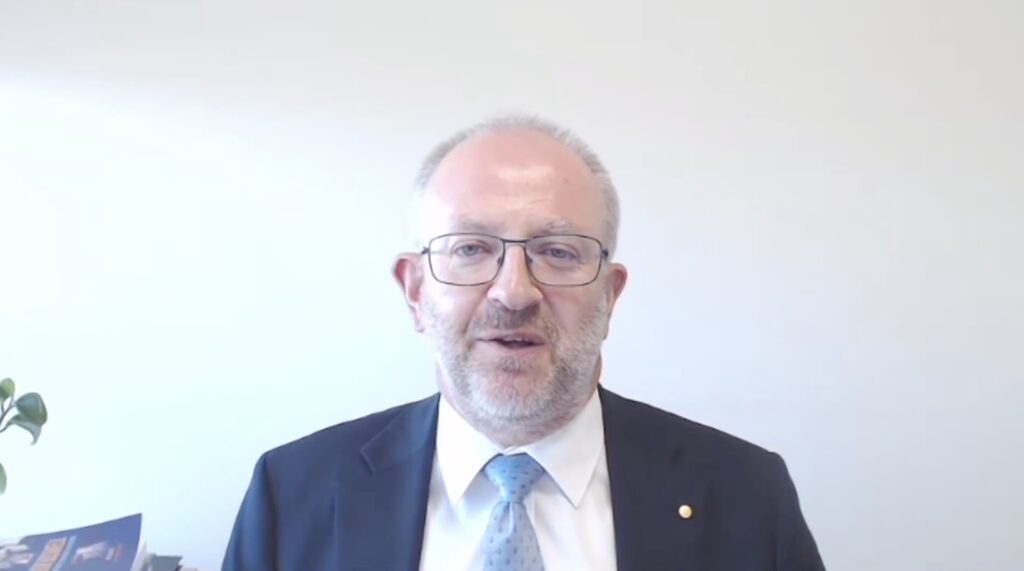IN THE MEDIA
That road does not lead to peace
October 17, 2007 | Colin Rubenstein
Colin Rubenstein
The Age Online – October 17, 2007
VISITING British-Palestinian intellectual Ghada Karmi referred frequently to Middle East peace in her recent article, (“Israel’s power is roadblock to peace in the Middle East”, The Age Opinion, 10/10) but also perfectly illustrated one reason why achieving a viable and lasting Israeli-Palestinian peace has been so hard.
Dr Karmi’s peace is not peace as most people understand it – agreements and arrangements to recognise and implement the basic rights of both parties, and peacefully settle disagreements. What she actually seeks, as she has made clear numerous times, is “peace through victory” – whereby it is agreed that all of Palestine is Palestinian land to which Jews have no claim.
Unfortunately, this view remains all too common among Palestinian intellectuals, and a major barrier to viable peace.
Karmi ostensibly argued that supposed Israeli obstreperousness and power is preventing a two state solution, and therefore a one-state solution is the only viable option.
Much of her argument is based on false premises and exaggeration – her claim that Israel has never made a peace offer, ignoring Camp David and Taba in 2000-2001, is just one example. But her bigger problem is that she is on record repeatedly opposing any two-state solution that leaves Israel in existence.
Even before the Oslo process collapsed in 2000, Karmi wrote in a 1999 paper that “a two-state solution … would have been unstable and ultimately unacceptable to the Palestinians because … it would have set the seal of approval on the Zionist claim to Palestine as the exclusive land of the Jews which no Palestinian has ever accepted”.
In 2002, she argued that any two state solution was fundamentally “unequal” and therefore could not resolve the “Palestinian sense of injustice”. In 2004, she wrote of Israel’s “inevitable absorption into the Arab world” by demographic means.
She is also against an Israeli-Palestinian “binational” state because, she has repeatedly said, Palestinians cannot co-exist with “Zionism”. In Perth last Monday, she reportedly told the audience that when her one-state solution is implemented, she expects most of the Jews to go back to Europe.
One should therefore not take seriously Karmi’s rhetoric about the Arab peace plan and Israel’s supposed refusal to accept it (actually, Israel has said it is happy to start negotiations about the plan). She has repeatedly made clear she opposes any such plan for a two-state resolution unless it contained a legally unprecedented absolute “right of return” to Israel, not the future Palestinian state, for 5 million or so descendants of refugees from the 1948 war. This would quickly turn Israel into a majority Arab state, as Karmi would likely concede and applaud.
Karmi did correctly say that the outline of the resolution to the Israeli-Palestinian conflict is now apparent. However, it follows more or less the parameters for a two-state solution laid down in the Camp David and Clinton initiatives from 2000, whose fundamental premise Karmi rejects – two states for two peoples.
Karmi’s rejectionism is hardly unique, unfortunately. Hamas, which controls Gaza, offers an Islamic variant on her view that the only solution is Israel’s eradication. Moreover, Salman Abu Sitta, a prominent Palestinian activist on refugee issues, wrote last week to Palestinian President Mahmoud Abbas demanding he reject “mutual recognition – Israel as the national homeland for the Jews and, on what’s left of the land, Palestine as the national homeland of the Palestinians”.
Happily, recent polls apparently show most Palestinians are prepared to support the only kind of two-state resolution that can work. Similarly, polls of Israelis have consistently shown for years a large majority for such a deal if the outcome is real peace. This is also the current Government’s policy.
The problem remains making such a resolution a reality, as both sides attempt to hammer out an agreement on principles for a final peace settlement in preparation for the Annapolis meeting on the Middle East scheduled for the end of November. Mahmoud Abbas no longer controls Gaza, and his hold on the West Bank is shaky. Even if he can gain public support for a deal, it is unclear he could implement it in the face of violent opposition from rejectionist groups backed by outside parties such as Syria and Iran. Meanwhile, not only is Israeli Prime Minister Ehud Olmert politically weak domestically, Israel would be foolish to try and implement any deal requiring security risks and serious concessions while it remains unclear that Abbas can prevent the rejectionist groups from exploiting concessions to escalate terrorism.
Progress will not be easy, but it is worth continuing to make the attempt, because for the sake of both peoples, peace is urgently needed. Rhetoric aside, to demand that the conflict continue until Israel agrees to knowingly surrender any Jewish identity, as Karmi and many other Palestinian intellectuals do, is to condemn both peoples to decades more violence and horror, and has nothing to do with peace.
Colin Rubenstein is executive director of the Australia/Israel & Jewish Affairs Council. Previously, he taught Middle East politics at Monash University for many years.
This story was found at: http://www.theage.com.au/articles/2007/10/16/1192300766277.html
Tags: Israel





